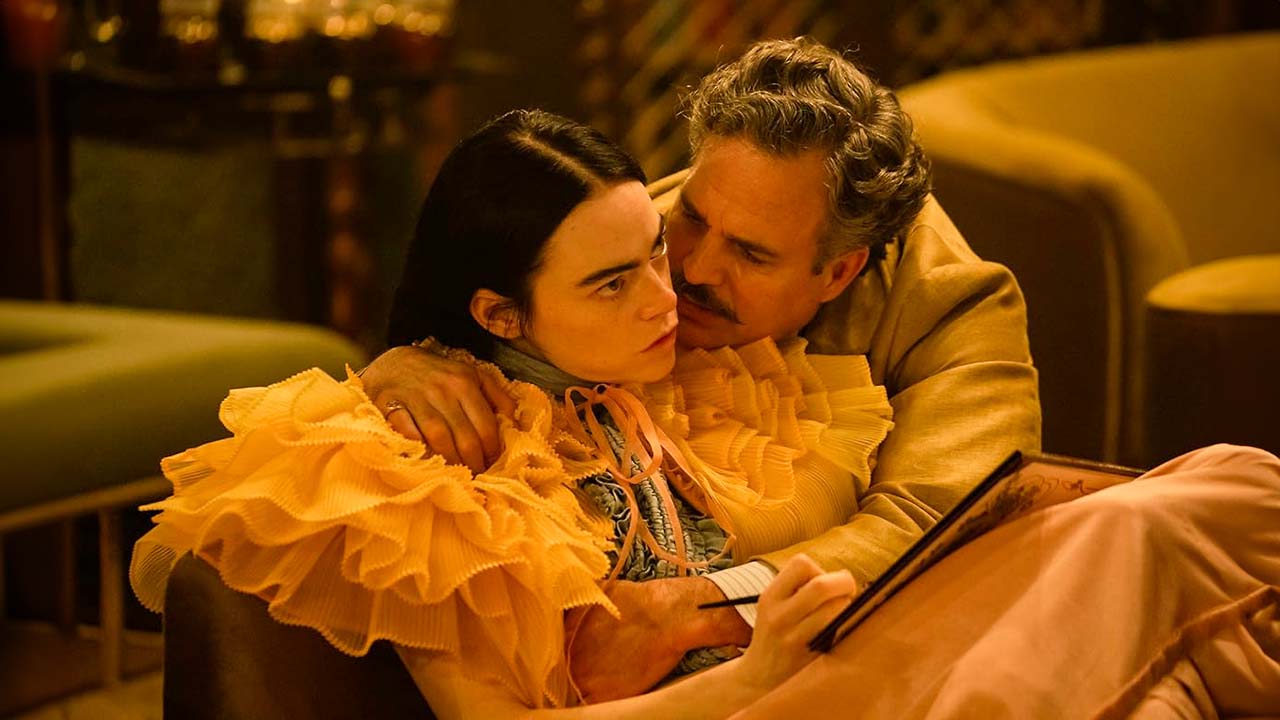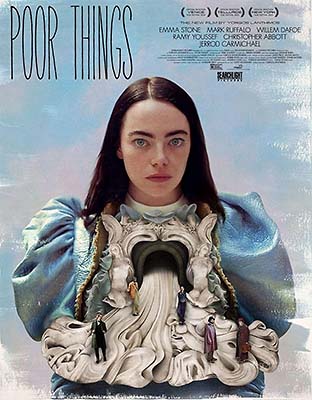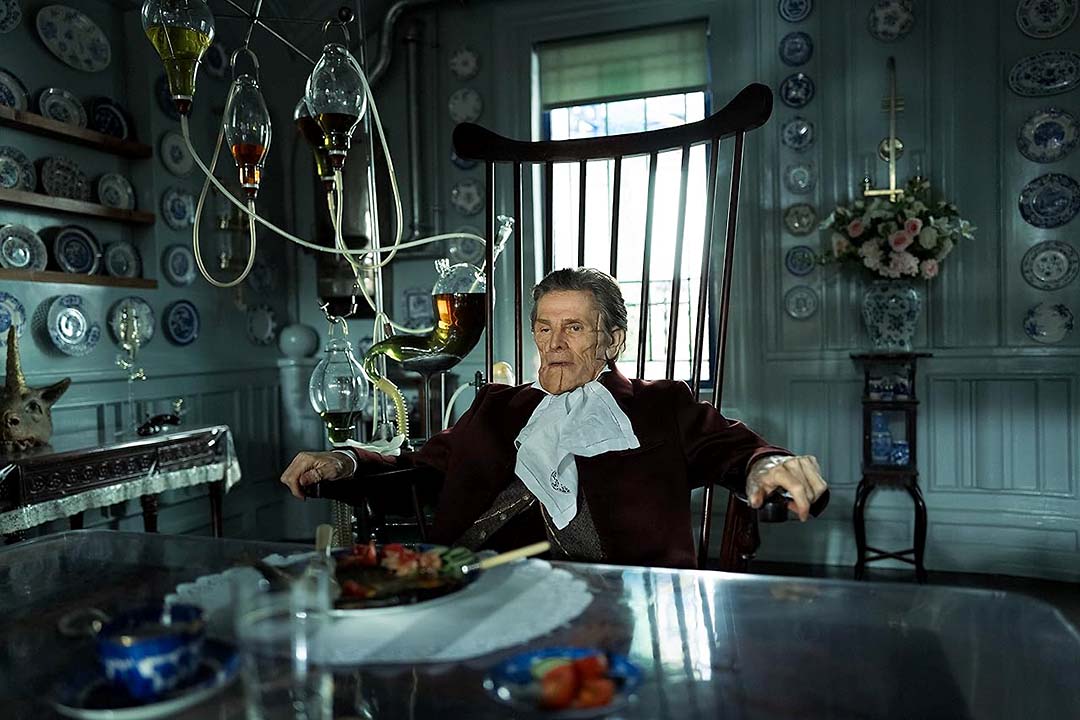On Screen: “Poor Things”

Poor Things
 I’m told that Yorgos Lanthimos’s films (“Dogtooth,” “The Lobster,” The Favourite”) are an “acquired taste,” meaning that — at first viewing — they’re unpleasant but after being experienced repeatedly, they’re, perhaps, likable and can be appreciated.
I’m told that Yorgos Lanthimos’s films (“Dogtooth,” “The Lobster,” The Favourite”) are an “acquired taste,” meaning that — at first viewing — they’re unpleasant but after being experienced repeatedly, they’re, perhaps, likable and can be appreciated.
Unfortunately, I have not found that to be true, particularly as it applies to his newest sci-fi dramedy “Poor Things,” a strange, surreal satire that just won the Best Musical/Comedy Golden Globe and features Golden Globe-winner Emma Stone’s full-frontal nudity.
Adapting Scottish author/artist Alasdair Gray’s 1992 dementedly comic novel, screenwriter Tony McNamara focuses the late-Victorian-era story on the bizarre evolution of Bella Baxter (Stone), a suicidal pregnant woman reanimated by reclusive, facially scarred mad scientist Dr. Godwin Baxter (Willem Dafoe), who transplants into her cranial cavity the brain of the baby in her womb.
With the inquisitive, impulsive mind of a child and a beautiful woman’s body, hedonistic Bella loves sex in all its permutations — from joyful masturbation to Parisian prostitution. She finds it enticing and empowering, which is why — eager to experience all the wonders of the world — Bella runs off with womanizing con-artist/lawyer Duncan Wedderburn (mustachioed Mark Ruffalo), much to the consternation of her ‘fiancé,’ medical student Max McCandless (Remy Youssef), Dr. Baxter’s research assistant.

After learning to pleasure herself with a bowl of fruit, Bella tells Max, “Let us touch each other’s genital places!” Then, having discovered fornication, which she calls “furious jumping,” she wonders: “Why do people not do this all the time?”
Following her “La La Land” acclaim, Emma Stone filmed Yorgos Lanthimos’s “The Favourite.” So she’s developed total trust in the Greek auteur, fearlessly citing nymphomaniacal Bella as “the greatest character I’ll probably ever get to play.”
“Bella is a bit of a Frankenstein, but she’s also an experiment in the sense that everything is happening very rapidly on her,” Stone says. “Her hair grows about two inches every couple of days.” And it’s no coincidence that ‘Godwin’ was “Frankenstein” author Mary Shelley’s maiden name.
Cinematographer Robbie Ryan refers to the evocative artificiality of Francis Ford Coppola’s “Bram Stoker’s Dracula” (1992) as his inspiration, using early cinematic techniques like miniatures, bizarre lighting and false perspectives. He films the early scenes in London in black-and-white, not introducing jewel-toned color until Bella embarks on her seductive journey of self-discovery.
Whether or not the absurdist perversity — with its many grotesquely explicit carnal scenes — appeals to you, it inevitably sparks controversy.
On the Granger Gauge of 1 to 10, “Poor Things” is a formidable, flamboyant, fantastical 7, playing in select theaters.
 Susan Granger is a product of Hollywood. Her natural father, S. Sylvan Simon, was a director and producer at M.G.M. and Columbia Pictures. Her adoptive father, Armand Deutsch, produced movies at M.G.M.
Susan Granger is a product of Hollywood. Her natural father, S. Sylvan Simon, was a director and producer at M.G.M. and Columbia Pictures. Her adoptive father, Armand Deutsch, produced movies at M.G.M.
As a child, Susan appeared in movies with Abbott & Costello, Red Skelton, Lucille Ball, Margaret O’Brien, and Lassie. She attended Mills College in California, studying journalism with Pierre Salinger, and graduated from the University of Pennsylvania with highest honors in journalism.
During her adult life, Susan has been on radio and television as an anchorwoman and movie and drama critic, syndicating her reviews and articles around the world, including Video Librarian. She has appeared on American Movie Classics and Turner Classic Movies. In 2017, her book 150 Timeless Movies was published by Hannacroix Creek Books. Her website is www.susangranger.com.
